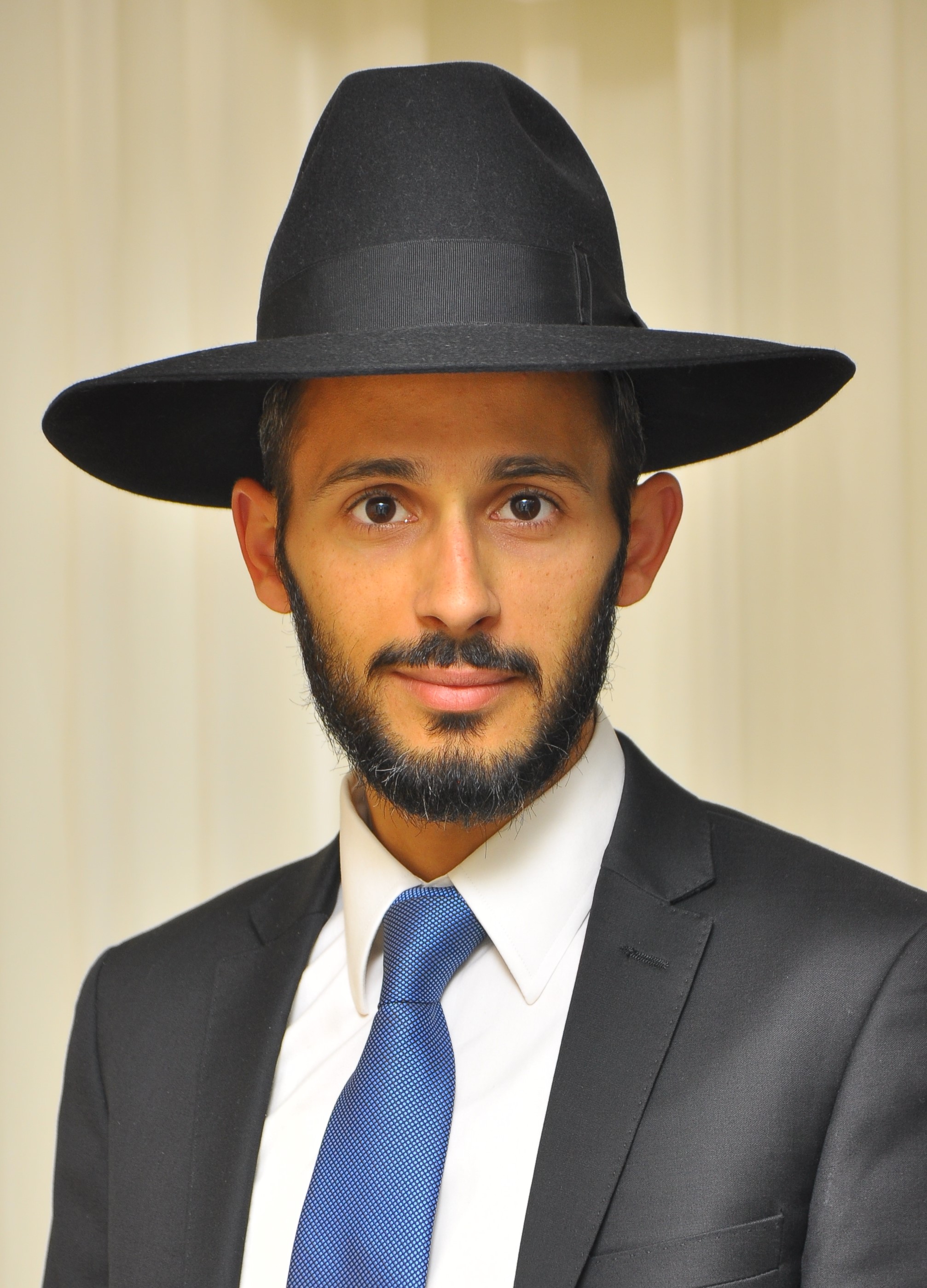"This is a call for help, we must save the youths, they don't suddenly stray"
What led Rabbi Avraham Leshem to support teenagers in crisis? How did he respond to a boy wandering in the streets? And what does he believe can prevent dropping out? In a bold and fascinating interview, he answers these questions and also gives a sneak peek into the dedicated books he's authored.
 (Photo illustration: shutterstock)
(Photo illustration: shutterstock)When Efraim (an alias), a 15-year-old, celebrated the completion of a masechta, he announced to his parents that one of the invitees would be Rabbi Zamir Cohen shlita. The surprised parents were sure the boy was imagining things, but Efraim was certain the rabbi would attend his celebration. "His son-in-law, Rabbi Avraham Leshem, promised me," he insisted passionately.
And he was right. Rabbi Zamir indeed came to the event and took part in it. The guests found it hard to believe and could not understand why a rabbi with such a tight schedule would trouble himself to attend a young boy's celebration, but for Efraim it was an immense encouragement.
"It's impossible to describe what this boy went through," says Rabbi Avraham Leshem. "The first time I met him, he was about 14. Living on a nearby street, I noticed encountering him too often in the mornings, when he supposedly should have been at yeshiva, indicating to me that he didn't really have a framework. I knew he had two older brothers who left the path, and when I saw his attire starting to change, I understood something was probably happening to him."
 Avraham Leshem
Avraham LeshemWith his vast experience, Rabbi Leshem knew that if he approached Efraim offering help, the boy would likely reject him, so he took a different approach. "I initially approached him as if I needed a small favor, and that’s how we started our first conversation. Only after a time, when we would chat briefly here and there, I felt we had built trust, and he didn’t see me as an overseer preaching at him, but as someone who genuinely cared for him and his well-being. At this point, I set up a longer meeting where we talked about his plans for the future. In that conversation, Efraim revealed to me that he didn't intend to return to yeshiva."
"I genuinely cared for him, so I tried to explore with him what he would really gain by leaving. Being a good student with excellent learning abilities, we agreed on some joint study sessions with light reviews. But I still sensed he wasn’t at peace with himself, so I promised him that if he could finish a masechta, I would bring Rabbi Zamir to attend the event. I knew it was an unusual request, but I was also aware that the rabbi shlita sees this topic as literally saving lives."
The story has a very touching continuation: "The young man set himself on the right path and studied at one of the top yeshivas in the country," Rabbi Leshem announces, "I recently learned he got engaged to an excellent girl. These are not natural things, nothing to be taken for granted at all."
Spreading a Safety Net
Efraim's story is joined by other cases of boys on the verge of dropout, whom Rabbi Leshem has supported, either closely or from afar.
"The truth is all this activity started thanks to my wife, Pnina," he shares. "About seven years ago, we became aware together of the great need in Betar Illit for providing solutions to girls in crisis. Those days led us to establish the 'Etgar' initiative – an active youth center organizing lectures, trips, and various experiences for these girls. Later, this expanded into a department at the Hidabrut organization. As a necessary and fundamental response for the girls, my wife authored the guides 'Love for the Moment' and 'Truly Beautiful,' addressing the girls, urging them to protect themselves, not for their parents or environment, but first of all for themselves and the home they will establish. Thank God, about two years ago, we also managed to establish a high school for girls operating with a unique approach."
"Along this journey, I have stood behind the scenes of all the activities," Rabbi Leshem notes. "Although my main occupation, to my great joy, is rabbinical and judicial studies, and as part of it, I provide halachic responses under 'Rabbi on the Line,' as a rabbi answering halachic questions. But one cannot ignore the tremendous need and the pain of precious girls and boys, whom we can save, as the calling 'the voice of your brother's blood calls out to me from the ground.'
"Thank God," adds Rabbi Leshem, "it is moving to see each time anew how the youths manage to set themselves on the right path and reach better places. Again and again, I am startled to discover how much they essentially need someone to truly listen to them, to give them the proper and precise response. This is also the place to emphasize that every person has an obligation to open their eyes and look around them. If he sees kids in such situations, he should try to help them, this can be a literal saving of lives. Especially in the wake of Corona - this is a call for an emergency mobilization."
Rabbi Leshem emphasizes that it is clear to him that not everyone can hold conversations and bring them closer. "But a pat on the back, or a word of appreciation and encouragement is certainly something everyone can give, and from there onwards, the youth can be connected to a suitable figure who will know how to provide the professional response and have the appropriate conversation."
But why would the youths want this connection and these conversations? After all, what they want is to break free and disconnect!
"That's exactly the mistake," says Rabbi Leshem, "A good place is not abandoned. There’s almost no boy or girl who is content and yet they are looking outward. Anyone who chooses such a path does so only due to a necessity because they are not well. It could be due to an academic, mental, or emotional problem. It could be from distress at home, a poor upbringing, or abuse. But there must always be a reason. Before a dropout process, there are many signals, there is no such thing as 'suddenly he left the yeshiva,' or 'suddenly he fell,' or 'suddenly he dresses like this, or behaves like this...' Nothing happens 'suddenly.' Nobody wakes up one morning and decides to drop out of the education system. It is a very long process. So? We didn't notice all the early signals. Signals that say 'I'm not okay.'"
So what can be said to parents whose son is in such a situation?
"I want to tell them that I completely understand them. This is a very complex conflict, but it is precisely in this conflict that there is significant room for trust in the child. One of the well-known phrases of these youths is 'stop digging into me,' and that's so characteristic of the age. They want to build themselves, find their place.
"Moreover," he adds, "if we delve into thoughts on this age, we see that the teenage years are very challenging – on one hand, the youth is still not mature enough to make correct life decisions, but on the other hand, he is not ready to listen to parents who want to advise him. Thus, he's shaping his identity in the world without truly understanding what is expected of him, if it’s right for him, and what enormous price he might pay in the future.
"As parents, we need to act wisely, accompany the youth with sensitivity, give him the space to decide while providing a support system, so even if he falls, heaven forbid, he won’t crash. We spread a safety net under him, even without him knowing. And most importantly, before anything else - it is crucial that we give the youth the feeling that we love him, respect him, and trust him, out of genuine trust. By the way, that’s also one of the reasons why he’s called 'na'ar.' He 'shakes off' the childhood and moves to adulthood. That's how he builds his inner world."
Saving the Youth
After years of accompanying boys, Rabbi Leshem concludes that prevention is easier than dealing with severe situations. "The motto we adopt in our activities is prevention. As anyone dealing with this field knows, there are not a few budgets directed towards dealing with at-risk youth, but most of them are for helping those already deteriorated. We argue that efforts should be made a moment earlier – to bring budgets for prevention, so we can save many more youths, who sometimes need nothing more than a motivational conversation or light guidance. This is also what led me to write the two books being published these days – 'The Warrior' and 'Love for the Moment.' These are books intended for youths exactly in such situations."
What do the books address?
"The book 'The Warrior' provides basic answers for struggling youths facing a confusing and even threatening period of life, sometimes accompanied by difficult attempts and challenges. The book deals with confronting the evil inclination and guarding the eye, with an understanding of the boy's feelings, which are undoubtedly legitimate. When a boy understands that it’s natural and normal, but you also need to learn how to deal with the challenges, he is less frightened by what he experiences, and it becomes much easier for him to cope. The book emphasizes proper tools for dealing with challenges, as well as providing complementary answers for cases of faults and falls.

"The second book, 'Momentary Enjoyment', is more specific, in a sense providing a broader response to boys who have reached a stage where they face attempts like relationships, friendships, and problematic things. Here, the main focus is on explaining to the boy why it is so worthwhile for him to take care of himself and what price he might pay for relationships at this age. The main explanation is that it’s worth it for him to preserve himself not for the parents or family, but first and foremost for himself and for his future.
"In addition to the topic of relationships, the book also addresses dealing with smartphones and not secure devices. Sometimes boys buy such a device thinking 'I'll use it only for sending messages,' and don't understand how such a device neutralizes the boy from all the holiness and spirituality he gathered. Even if he uses it only for sending and receiving messages...
"It is important to highlight that we made sure the content in the book would be conveyed in a pleasant and friendly manner; therefore, much effort was invested in the design and printing of the book, appealing even to those who 'don't like to read'..."

Isn't there a fear that the books will end up in the hands of boys who are on the right path, potentially exposing them to new worlds?
"Firstly, I want to emphasize that the book is primarily written for struggling youths. I assume that a serious boy does not need such books because, after all, he has a supervisor, and there are also talks and ethical books that provide a better and more suitable response. On the other hand, understanding that today is not like it was before, with the information available in networks and attempts sometimes exposed even to stronger boys, there is a great advantage in these books as well, because sometimes, if a boy reads the book and later encounters such an attempt, he knows in advance not to fall into it. It’s not that we would choose this, but like a vaccine, we must vaccinate them in advance, because if we don't prepare them and provide a protective wrap, they might, in a heartbeat, fall and deteriorate."
"By the way, even with the girls' book - 'Love for the Moment' such a concern arose, and thank God, I can note that throughout the years since it was published – not only did we not receive any complaints. Even more, we received very positive feedback and even heard from counselors working in the most guarded places that they keep the book specifically for those girls who need detailed answers. Because in every place, there are girls who are struggling."
So you've published books for girls and now releasing books for boys. Are there further plans?
"In the near future, a viewing series is set to be released aimed at educators and teaching staff, where my wife covers all aspects of identifying and detecting struggling girls within the education system, the factors for dropping out, and the appropriate tools for dealing with the issue, to prevent falls from the outset and save a lot of pain. With Hashem's help, we pray to continue bringing only good to the Jewish people."
To purchase the books through Hidabroot Shops:
The Warrior - The Inclination and Challenges in Teenage Years, Click here.
Momentary Enjoyment - Friendships and Relationships in Teenage Years,Click here.
The 'Love for the Moment' series for girls dealing with friendships and relationships, Click here.
The 'Truly Beautiful for Girls' guide, Click here.

